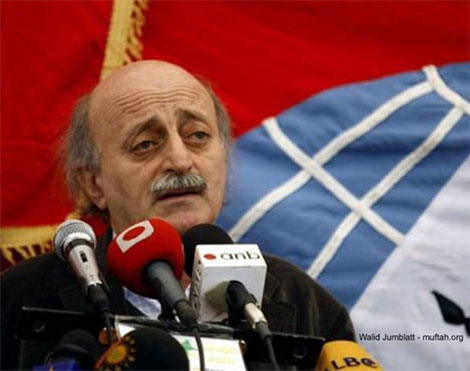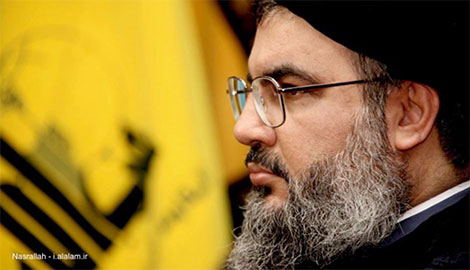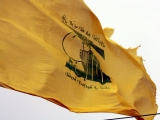The Hezbollah-Iran Pivot: The Controlling Agencies behind Lebanon’s Sectarian Politics
4 Aug 2016
By Imad K Harb for SAGE International Australia (S.I.A)
This article was external pageoriginally publishedcall_made by external pageSage International Australiacall_made on 18 July 2016.
Lebanon has lacked for a chief executive since May 2014, when former President Michel Suleiman’s six-year term expired. The Lebanese Parliament has failed forty-two times (and counting) to convene a constitutional election session in which at least two-thirds of its members participate to ensure a quorum. The country’s government, under the premiership of Sunni politician Tammam Salam, has by default become the only executive authority in the land, but political wrangling deprives it of cohesion and effectiveness. Meanwhile, Parliament itself is steadily marching toward the expiry of its own term in less than a year – which, at any rate, its members had twice renewed before, once during Suleiman’s presidency and once after it.
Indeed, the country’s constitutional life is living on borrowed time as a myriad of political, economic, security, and social problems around it metastasize. As is natural when state institutions fail to exercise guiding authority, Lebanon’s political factions have shrunk to mere instruments for ensuring vertical communal interests in what the late historian Kamal Salibi called “the many houses of the Lebanese mansion.” The country’s economy is verging on collapse as American sanctions on Hezbollah threaten the health and survival of Lebanon’s banking sector, perhaps the last remaining vestige of its old and vibrant capitalism. Its army is facing both domestic and external challenges emanating from the Syrian bleeding ulcer in which Hezbollah has so nonchalantly immersed itself, thus gambling with the country’s security. Finally, Lebanon’s social fabric of 18 different sects is experiencing wrenching tensions arising from political uncertainty and the real deluge of two million dispossessed Syrian refugees who no one believes will be able to return to their homes any time soon.
The Presidential Stalemate
Since before the expiry of President Suleiman’s term, Hezbollah has declared its support for the candidacy of 82-year-old Michel Aoun – a Maronite former general and current leader of the Free Patriotic Movement – who commands a majority of Christian deputies in Parliament. The endorsement is a culmination of an old alliance dating back to 2006, when Aoun placed a bet that Hezbollah will one day make him president to capitalize on a wider constituency outside Hezbollah’s Lebanese Shiite base. However, the alliance has made the former general beholden to Hezbollah’s regional connection as the strike force of the Iranian Revolutionary Guard Corps (IRGC), thereby depriving Aoun of the opportunity to broaden his support outside of Hezbollah’s coalition of forces that control less than half the number of parliamentary seats.
Last December, in an effort to break the stalemate over the presidency, the leader of the Future Movement and former Prime Minister, Saad al-Hariri, nominated another Hezbollah ally, Suleiman Franjieh, for the post. The choice was patently controversial and Hariri was excoriated by his allies. Franjieh has been an avowed friend of Syrian President Bashar al-Assad since the days of Bashar’s father, Hafez, and because of long-established relations and interests between their two clans. As everyone understood, the nomination must have been sanctioned by Hariri supporter Saudi Arabia, one of the countries with influence in Lebanon and one which could see a Franjieh presidency as an acceptable compromise if it could not alone decide the person of the future president, his connection with Assad notwithstanding. Franjieh’s choice was also seen as a way of partly accommodating Hezbollah, and by extension its mentors in Tehran at this juncture of the Syrian conflict, while saving Lebanon’s threatened constitutional life.
But Hariri’s move caused much consternation. For example, former Commander of the Internal Security Services and Hariri ally Ashraf Rifi, tendered his resignation as Justice Minister from the government. Other personalities and small parties in the liberal ‘March 14 Coalition’ expressed dissatisfaction. The nomination also caused a rift with Samir Geagea, the Maronite leader of the Lebanese Forces Party and an aspirant to the presidency, whom Hariri and Saudi Arabia had supported for the post since before May 2014.1 But prior to Hariri’s Franjieh move, Geagea had begun a rapprochement with Aoun that reeked of political expediency; he and Aoun are long-time rivals and had fought bloody battles for the control of Christian areas at the tail end of the Lebanese civil war (1975-1990). Importantly, Geagea may have reasoned that the presidential election remained in Hezbollah’s hands alone and thus may have sought to shore up his position among the Christians as a defender of their interests in a country they feel they are losing after working hard to create it a century ago.

On the other hand, Hariri’s move received unqualified support from the centrist Walid Jumblatt, leader of the Druze-based Progressive Socialist Party, and Nabih Berri, Speaker of Parliament and head of the Shiite AMAL movement that, paradoxically, supports the Syrian regime and is an ally of Hezbollah, but has deep animosity toward General Aoun. Both Jumblatt and Berri saw Franjieh as a middle-of-the-road president who can help steer the country through myriad minefields. Together with Hariri’s bloc in Parliament and a smattering of other Christian parties, they control more than half the number of parliamentary seats and can therefore elect a president should a constitutional session be held.
But Hezbollah would have none of it. The party still insists on Aoun as candidate, and as president, and wants Parliament to anoint him before the vote – or at least that is what it professes. Party Deputy General Secretary Naim Qassem minced no words last April, insisting on Aoun’s candidacy but in the same breath declaring that Lebanon’s presidential election doesn’t seem to be plausible for the foreseeable future, blaming regional conditions. Franjieh’s friendship and alliance notwithstanding, Hezbollah still refuses to allow the convening of a session where either one of its allies could be elected president. This has raised many questions and accusations of sinister intentions, not only against the Party of God,2 but also against Iran whose responsibility could not be denied, given the financial and material support it has bestowed on it for the last three decades.
A typical criticism of Iran’s recalcitrance is one that accuses it of holding Lebanon hostage to Tehran’s regional strategic interests and calculations. Chiefly, critics invariably say that Iran and Hezbollah refuse to allow the election of a president because the Lebanese state would then have a unifying legal authority that might demand that the party withdraw from Syria and dissociate Lebanon from partisan entanglement there. Former President Michel Suleiman did just that to no avail when Hezbollah waded into the Syrian quagmire in 2012. Avoiding a confrontation with Hezbollah was Suleiman’s only option since it was plunging the country into a civil war which it was prepared to fight, given that Hezbollah could not disobey orders from Tehran to help Syria’s Bashar al-Assad.
Ineffective Government and a Dormant Parliament
More sinister accusations have gone further in excoriating Hezbollah and Iranian designs. Prominent newspaper columnist, journalist, and commentator Emile Khouri wrote on June 17 in Lebanon’s premier newspaper, an-Nahar, that “Iran is continuing with its plan to cause a complete political vacuum in Lebanon.” He saw that by first preventing the election of a president through Hezbollah, the Islamic Republic of Iran could cause a long-term presidential vacuum that would soon extend into the work of the government, and as a consequence allow for the complete paralysis of all executive authority with the possibility of an outright takeover of Lebanon by Hezbollah.
Khouri’s prediction could very well be true. As it is now, the government is a mere representative of the vertical political and sectarian cleavages of Lebanese society. It has repeatedly failed to find reasonable solutions to rather mundane technical problems such as trash collection, electricity generation, budget resolutions, and development projects. Its meetings have become mere occasions for getting together and airing political differences in futile attempts to assert untenable positions. Corruption is rampant in its ministries as ministers strive to get pieces of an ever-shrinking pie. Indeed, Premier Salam himself behaves as if he is psychologically defeated and has frankly declared that his cabinet is the worst in Lebanon’s history.
Khouri’s warning also extends into the symbol of Lebanese consociational politics, the Lebanese Parliament. New elections have been scheduled for June of 2017, but no one can be sure that they will be held because of disputes over a new electoral law. Some parties, like Hezbollah and its supporters, advocate a majoritarian law in which Lebanon would be one electoral district that would automatically give a plurality to the Party of God since Lebanon’s Shiites have become the largest sect. Others, like the Progressive Socialist Party, are pushing for a law that preserves the characteristics of individual districts, thus ensuring their sectarian presence. And yet others propagate the idea of a mixed law that preserves elements of the two extremes. It does not help that the constitution stipulates that a parliamentary election can only be held if a sitting president supervises it, although some constitutional experts say that the present cabinet can undertake that role since it is the ‘executive authority’. In other words, Lebanon arguably has until the spring of 2017 to sort out its institutional makeup and continuity, otherwise, no one knows how its constitutional vacuum will end.
The Regional Roll of the Dice
What complicates this domestic dire condition is the inextricable connection between Lebanon and regional turmoil. Hezbollah’s participation in the Syrian conflict has in effect eroded the state’s institutional power by committing the country willy-nilly and without consultation, to the future of Syrian President Bashar al-Assad and his regime. Its gamble – and it is that, because no one is in a position to predict al-Assad’s survival – also has attendant strategic and political repercussions beyond the institutional crisis.
Being Iran’s strategic asset in the eastern Mediterranean, the party has made its own Shiite community and its ‘nation pieces’ in the region-wide chess game the Islamic Republic of Iran is playing. Lebanon’s Shiites, whether they like it or not, are today an important source of fighters for the war in Syria. Lebanon itself is at once an arms depot to be used by Hezbollah in a potential war with Israel; a forward position into Syria; a place for a dangerous sectarian and strategic rivalry with Saudi Arabia; and a base for Iran’s strategic stretch into Europe. The party is also an alternate trainer of Yemen’s Houthi rebels and Iraqi and Bahraini militias.
And nothing today indicates that Hezbollah will relinquish its hold on Lebanon or, that Iran will allow a return to a working democracy Beirut. Indeed, Hezbollah’s General Secretary Hassan Nasrallah’s newest proud admission (in a speech on June 24) that the party’s weapons and financing for its myriad of social programs –historically the best tool for indoctrinating Lebanon’s Shiites – come from Iran, is the latest proof that Tehran is in charge of the country.
Hezbollah itself is subject to stringent American sanctions that have finally reached its and its leaders’ accounts in Lebanese banks, which are scrambling to meet their obligations before being frozen out of dollar-denominated transactions in the country and around the world. The party has actually threatened the Governor of Lebanon’s Central Bank, Riad Salame if he complied with the sanctions, but the latter had no choice but to protect the country’s last healthy economic sector. An explosion near the main branch of BLOM Bank in Beirut on June 12 – which only caused material damage and was not claimed by any terrorist group – was understood to be the party’s response and warning in that regard. It, however, did nothing to change the Governor’s position.
What also makes Lebanon’s situation more dire is that it seems to have been left to its own devices to try to limit the damage Hezbollah and Iran have inflicted on it. Its traditional and long-standing allies in the Arabian Gulf have finally decided to forsake what was for decades an ironclad commitment to its welfare and wellbeing. Saudi Arabia a few months ago decided to cancel its $4 billion grant in security assistance ($1 billion for internal security forces and $3 billion for the army), after Lebanon’s foreign minister Gebran Bassil, an ally of Hezbollah’s, refused to condemn at an Arab League meeting last January, the burning of Saudi diplomatic missions in Iran. It is quite possible to argue that Saudi Arabia had come to the conclusion that further assistance to Lebanon was merely strengthening institutions that may very well soon completely fall under Iranian influence. In March, the Gulf Cooperation Council (GCC) declared Hezbollah a terrorist organization, a declaration that was immediately adopted by the Arab League, with Lebanon and Iraq (another bastion of Iranian influence) dissenting. While legitimately reasoned, the Arab world’s ostracism of Hezbollah has resulted in a dangerous isolation for Lebanon, which finds itself gradually but surely becoming another strategic prize for Iran.
Neither does the United States appear to be concerned about what happens to one of its oldest allies in the Middle East. Its sanctioning of Hezbollah as a terrorist organization, merely freezes the latter out of legitimate financial institutions but cannot halt illegal Iranian financing and weapons transfers. Besides its terrorist activities in the Arabian Peninsula, Asia, Europe and elsewhere, the party has also been accused of money laundering, smuggling, and trading in narcotics. In answer to questions about Nasrallah’s latest admission of Iranian help, White House Deputy Press Secretary Eric Schultz reiterated the administration’s old stances: that the party is still a terrorist organization and that the United States will do what is necessary to prevent Iran from financing it. This ‘kid gloves’ approach neglects the immediate and long-term impact of the organization’s behaviour and threat to Lebanon, and Iran’s flagrant violation of international law and Lebanon’s sovereignty.

Conclusion
At this juncture of discord and instability in the Middle East, the Arab world, the United States, and the international community have an obligation to try to prevent what could very quickly become another active warfront in Lebanon. A few weeks ago, suicide bombers succeeded in skirting Lebanese army checkpoints in eastern Lebanon and detonated their explosives in the peaceful Christian town of al-Qaa, killing 5 and wounding 15 others. While no organization claimed responsibility for the attack (Hezbollah blamed ISIS), it may indicate a return to a prior wave of Islamic State suicide operations that previously targeted Shiite areas. With the presidential vacuum getting wider and deeper, governmental authority receding, parliamentary inactivity spelling the demise of democracy, and Hezbollah continuing to hijack the country with Iran’s assistance, Lebanon slowly but surely seems to be heading over the abyss.
Notes
1 Parliament held a presidential election session on April 23, 2014, in which Geagea was a candidate. He received 48 votes (37.5% of the total) while two other candidates received 17 votes as 59 blank and voided ballots were cast.
2 Which is the meaning ‘Hezbollah’.
About the Author
Dr. Imad K. Harb is a Member of the SAGE International Australia Advisory Board and the Founder of Quest for Middle East Analysis, Washington D.C.

